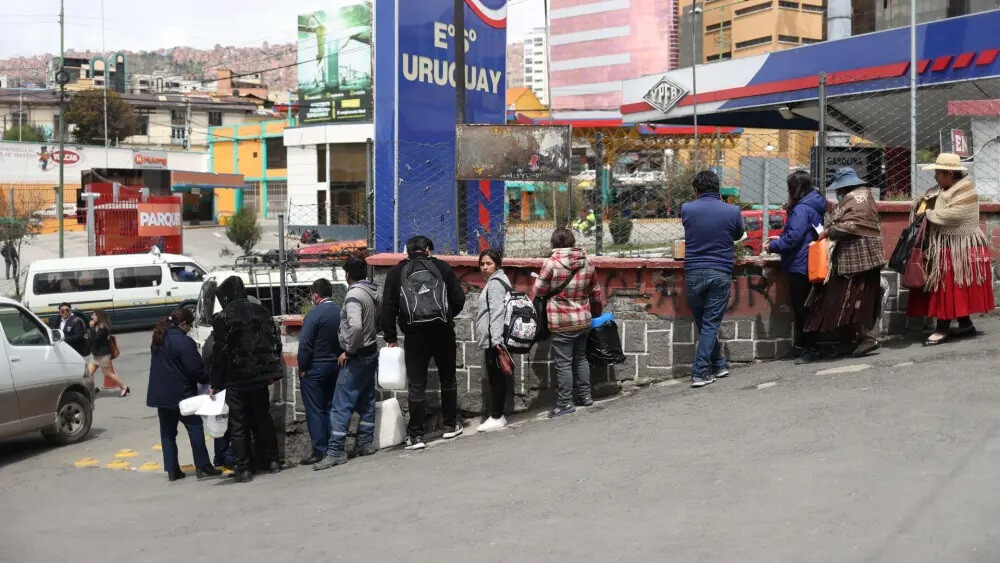
Bolivia is grappling with severe economic difficulties due to critical fuel shortages and escalating inflation. According to a survey conducted by the People's Ombudsman's Office on March 14 and 15, targeting 88 gas stations in 20 major Bolivian cities, 66% of the stations had halted diesel sales, and 38% had stopped gasoline sales. Moreover, 39% of the stations reported lines of over 100 vehicles, with 43% of drivers stating they had to wait between 11 to 24 hours to obtain fuel.
Government's Promise to Normalize Fuel Supply Fails to Alleviate Anxiety
Despite the Bolivian government, led by Luis Arce, announcing plans to distribute 46 million liters of diesel and 20 million liters of gasoline nationwide to restore normal fuel supply, the shortages persist, exacerbating public anxiety.
Soaring Prices Strain the Common People's Economy
In addition to fuel scarcity, rising food prices pose a significant challenge. Many stores in the markets have closed, and some merchants have reported a sharp decline in customers due to inflation. Particularly, the prices of essential food items like meat, rice, and cooking oil have surged, placing a heavy financial burden on ordinary citizens. Government-operated supermarkets under the Food Support Company (Emapa) are experiencing long queues of people seeking to purchase groceries at affordable prices.
Dollar Shortage: A Key Factor Hindering Fuel Imports
President Arce has recently acknowledged that the shortage of dollar liquidity has impeded the government's ability to import sufficient subsidized fuel. In response, the government has implemented energy-saving measures such as telecommuting, continuous work hours, and remote classes. Furthermore, a decree has been approved to allow the Bolivian state oil company (YPFB) to purchase dollars and virtual assets to cover fuel import costs.
BoliviaProlonged Economic Crisis Fuels Public Discontent has been struggling with a shortage of foreign currency liquidity since early 2023, leading to restrictions on dollar issuance within the financial system. The combination of fuel shortages and rising food prices has intensified public dissatisfaction with the government in recent weeks, triggering nationwide protests.
[Copyright (c) Global Economic Times. All Rights Reserved.]






























